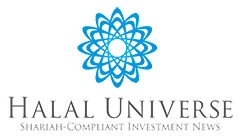SINGAPORE (29 July 2021) – Singapore Shariah investors were unperturbed by Sabana Shariah-Compliant REIT’s decision to cease adhering to Shariah principles in its investment and business activities comes October, notwithstanding that they will have to sell off their holdings when the REIT finally becomes a non-Shariah compliant entity.
Interest in the Shariah REIT has been on the decline. Once a darling of many Shariah investors in Singapore, a change of hearts began when the REIT’s performance went onto a slippery slope just a few years into its existence and the REIT becoming the poorest performing on SGX-ST. Unit holders’ unhappiness culminated with the resignation of the REIT’s founding CEO Kevin Xayaraj in 2017 following a bitter battle.
“In the end, investors are more concerned about returns on their investments,” said Khairuddin Sukor, Senior Consultant with Financial Advisory FAIWA.
Institutional investors’ interest from the Gulf too shrunk. Sabana announced last week, the total percentage of units held by Shariah investors decreased from approximately 12.3% as at 31 December 2011 to approximately 2% as at 31 March 2021. This is a far cry from when it first debuted in November 2010. Then, cornerstone investors included Al-Salam Bank-Bahrain, which alone held 28,571,000 units, or 4.5% of its capital.
Sabana REIT had warmed up many hearts in the Muslim investing community when it was publicly listed on the Singapore Exchange as a Shariah-compliant REIT by constitution. Back then Shariah-compliant investment instruments were a novelty. Sabana REIT was touted as the “world’s largest Shariah-compliant REIT” by assets and was giving out impressive yearly distributions of 8%-9% per annum.
Today however, the REIT is a dismal reminder of its early days. Sabana REIT closed trading Wednesday 28 July 2021 at $0.45/unit, less than half of its IPO price of $1.05 per unit.

Sabana REIT’s new management is keen to turn the REIT around. According to CEO Donald Han, the REIT is on the right track –- but for its Shariah principles. Han announced last week the REIT is progressing on to its next phase of growth and following “careful consideration” will be removing its Shariah compliance requirement in its investment activities and operations.
“Shariah compliance has differentiated us in the past, and we are grateful for the ecosystem of support it has given us access to. However, we have taken into account feedback from unit holders, undertaken our own feasibility studies, considered the REIT’s strategic objectives and assessed the broader macroeconomic landscape in consideration of the changing profile of our tenants. Ultimately, our guiding principle is how best to deliver sustained value for unit holders and hence our decision to remove the Shariah compliance feature,” Han added.
A real estate veteran with over 30 years of experience, Donald Han joined Sabana REIT as the new CEO in January 2018. He implemented a three-pronged “Refresh Strategy” to uplift Sabana REIT, which involves disposing of underperforming assets and matured assets; undertaking asset enhancement initiatives and acquisition of yield accretive assets locally or overseas.
Under its asset enhancement initiatives, Han revamped the REIT’s jewel asset New Tech Park at Lorong Chuan to a 43,000 square feet lifestyle mall comprising 25 retail and food and beverage units on the ground floor and a food court on the second level. It became operationally ready in the second quarter of this year.
Despite the pandemic, the take-up rate for NTP+ Lifestyle Mall has been strong at above 80% as of March this year, Sabana said. Tenants include Food & Beverage operators Collins, Wine Connection, Dutch Colony Coffee and Signature.
Sabana’s Poor Performance Not Due To Shariah Adherence
Although the new management is keen to remove the Shariah compliance requirement in both its investments and operations, analysts said the requirement wasn’t the reason for the REIT’s poor performance all these years.
“Sabana’s earnings and lack of performance has more to do with business fundamentals rather than Shariah,” a senior credit analyst said. “It is difficult to isolate what would its earnings be, if it’s without Shariah, but I would imagine not a lot different,” he added.
Sabana REIT, which now has 18 properties, has been suffering from reduced occupancy and rising costs. The ongoing Covid 19 pandemic hasn’t helped matters, the analyst said.
One keen observer of the REITs universe said Sabana REIT’s Shariah compliance requirement was intended as “a pure monetisation strategy” when it went public.
“The founders were taking advantage of the Islamic finance craze at that time. The impetus for making it Shariah-compliant at IPO was to attract Islamic equity capital.” Whilst its investing activities and operations were in compliance with Shariah principles, they were done at the “the expense of overlooking quality of assets (and) management.”
Sabana REIT’s previous managers have been criticised for overpaying for asset acquisitions. A private equity real estate investor in the Shariah space informed Halal Universe some years back that Sabana REIT managers had approached him in their efforts to exit their REIT investments. But he rejected their offer as Sabana’s managers had overpaid for their assets.
The limited availability of Islamic debt to a Shariah-compliant REIT outfit is also a challenge to its growth, the observer said. “Being an Islamic REIT means you need Islamic debt to acquire assets. That is a real challenge in this part of the world. It’s really hard to grow a REIT with limits on Islamic debt availability. I really see Islamic REITs to be more feasible in the private fund, close-ended space rather than in a listed space.”- www.halaluniverse.net








